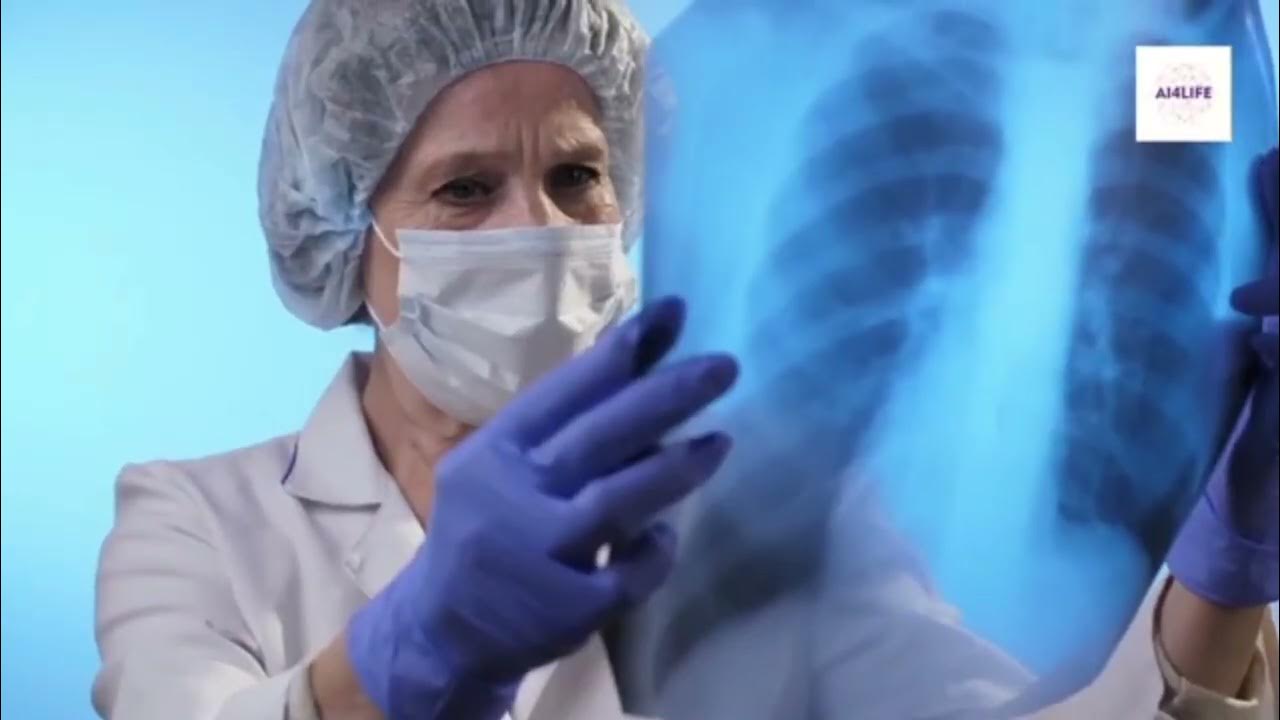How AI can make health care better
Summary
TLDRThe video discusses the growing role of artificial intelligence (AI) in healthcare, particularly in addressing the shortage of doctors and improving patient care. AI is shown to rapidly analyze medical data, such as retinal scans, helping to diagnose diseases more efficiently. The script highlights success stories, such as saving eyesight and heart operations, while also addressing concerns around patient privacy and the 'black box' nature of AI decision-making. AI is seen as transformative, potentially speeding up medical procedures, trials, and innovations, but challenges remain in ensuring transparency and accountability.
Takeaways
- 🤖 AI has the potential to revolutionize healthcare by transforming diagnosis and treatment processes.
- 🧑⚕️ There is a global shortage of doctors, leading to delays in patient care, particularly in fields like ophthalmology.
- 👁️ AI systems can diagnose over 50 types of eye diseases quickly, which could prevent many patients from going blind due to treatment delays.
- 🌍 By 2050, vision impairments are expected to increase by 50%, making the role of AI in diagnostics more crucial.
- 🔬 AI's ability to process and analyze medical data faster than humans could improve diagnoses across multiple fields of medicine.
- ⚠️ Privacy concerns remain a challenge, as illustrated by legal actions against DeepMind over inappropriate use of NHS patient data.
- 🔒 New AI technologies like Bitfount aim to improve data privacy while enhancing patient care by allowing data to stay within hospitals.
- 🏥 AI can potentially speed up the testing of medical procedures, such as simulating heart valve replacements before surgery.
- 💡 Empowering clinicians to develop their own AI models could lead to new discoveries in disease patterns and more personalized treatments.
- 💻 Virtual trials using AI can significantly reduce the time and cost of clinical trials, accelerating the development of new medical devices.
Q & A
What is the main medical problem highlighted in the script?
-The main medical problem is the growing number of patients and a shortage of doctors to treat them, leading to delays and inadequate care in healthcare systems worldwide.
How can AI potentially revolutionize healthcare?
-AI can transform healthcare by diagnosing and treating patients more efficiently, making medical procedures and trials faster and more effective, and handling large volumes of patient data that human experts cannot manage in a timely manner.
What specific eye condition is discussed in the script, and how has AI been involved?
-The script discusses age-related macular degeneration, the most common cause of blindness in the UK and US. AI has been developed to diagnose over 50 types of eye diseases quickly, significantly improving diagnosis speed compared to human doctors.
What are some of the risks associated with delayed eye care as mentioned in the script?
-Delays in eye care can result in irreversible blindness, as some patients are not seen and treated promptly due to overwhelming numbers of appointments, as highlighted by cases of patients losing their vision while waiting for care.
How does the AI system improve the diagnosis of eye diseases?
-The AI system can analyze retinal scans within seconds, identifying various disease features much faster than human experts, who may take hours or even days to complete the same task.
What are some concerns about using AI in healthcare, as discussed in the script?
-Concerns include threats to patient privacy, especially in cases where AI companies like Google DeepMind have mishandled sensitive medical data. There are also worries about accountability and interpretability when using AI models, as they often operate as 'black boxes' with complex, opaque decision-making processes.
How does the collaboration with machine learning startup Bitfount aim to address data privacy issues in AI healthcare applications?
-Bitfount's technology acts as a secure switchboard, allowing queries to be sent to data without the data leaving its home location, such as a hospital. This helps maintain patient privacy and reduces the risk of data misuse while still enabling AI-driven analysis.
What potential benefits does AI offer in the development and approval of new medical treatments?
-AI can speed up the testing and approval of new treatments by using privacy-preserving techniques, automating data analysis, and reducing the time required to conduct trials, ultimately bringing better medical solutions to patients faster.
How is AI being used to recognize patterns that are invisible to human experts?
-AI has been developed to recognize patterns in retinal scans, such as identifying a person’s gender, which is something human experts cannot do. This ability could lead to further discoveries in disease patterns and biomarkers.
What are virtual trials, and how do they benefit the testing of new medical devices?
-Virtual trials use AI to create digital replicas of patients, allowing multiple variations of new procedures or technologies to be tested without posing any risk to real patients. This approach speeds up trials, reduces costs, and helps identify the best treatments more efficiently.
Outlines

هذا القسم متوفر فقط للمشتركين. يرجى الترقية للوصول إلى هذه الميزة.
قم بالترقية الآنMindmap

هذا القسم متوفر فقط للمشتركين. يرجى الترقية للوصول إلى هذه الميزة.
قم بالترقية الآنKeywords

هذا القسم متوفر فقط للمشتركين. يرجى الترقية للوصول إلى هذه الميزة.
قم بالترقية الآنHighlights

هذا القسم متوفر فقط للمشتركين. يرجى الترقية للوصول إلى هذه الميزة.
قم بالترقية الآنTranscripts

هذا القسم متوفر فقط للمشتركين. يرجى الترقية للوصول إلى هذه الميزة.
قم بالترقية الآنتصفح المزيد من مقاطع الفيديو ذات الصلة

Perkembangan Teknologi Dalam Bidang Farmasi dan Kesehatan

Kecerdasan Buatan dalam Perawatan Kesehatan | Masa Depan Kesehatan dengan AI

Atenção! Não use o ChatGPT, você está correndo risco!

3 AI yang perlu dimanfaatkan di Rumah Sakit se-Indonesia

AI in Healthcare Series: State of Gen AI in Healthcare, Troy Tazbaz Former Head Digital Health FDA

PERKEMBANGAN TEKNOLOGI KESEHATAN DI ERA DIGITAL YANG SEMAKIN MAJU
5.0 / 5 (0 votes)
